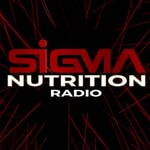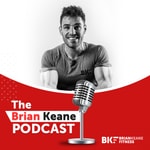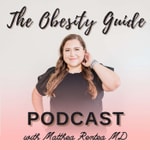Sigma Nutrition Radio – Details, episodes & analysis
Podcast details
Technical and general information from the podcast's RSS feed.

Sigma Nutrition Radio
Danny Lennon
Frequency: 1 episode/7d. Total Eps: 586

Recent rankings
Latest chart positions across Apple Podcasts and Spotify rankings.
Apple Podcasts
🇨🇦 Canada - nutrition
29/07/2025#70🇬🇧 Great Britain - nutrition
29/07/2025#56🇩🇪 Germany - nutrition
29/07/2025#87🇫🇷 France - nutrition
29/07/2025#83🇬🇧 Great Britain - nutrition
28/07/2025#30🇺🇸 USA - nutrition
28/07/2025#93🇫🇷 France - nutrition
28/07/2025#74🇬🇧 Great Britain - nutrition
27/07/2025#42🇺🇸 USA - nutrition
27/07/2025#88🇫🇷 France - nutrition
27/07/2025#58
Spotify
No recent rankings available
Shared links between episodes and podcasts
Links found in episode descriptions and other podcasts that share them.
See all- https://sigmanutrition.com/premium/
295 shares
- https://sigmanutrition.com/synopsis/
157 shares
- https://nutritionliteracy.podia.com/
96 shares
RSS feed quality and score
Technical evaluation of the podcast's RSS feed quality and structure.
See allScore global : 43%
Publication history
Monthly episode publishing history over the past years.
Timing of Eating: Energetic Hypothesis (SNP32)
mardi 27 août 2024 • Duration 11:06
In the ongoing exploration of weight loss strategies, the timing of food intake has emerged as a fascinating area of study. While traditional advice often focuses on what we eat, growing evidence suggests that when we eat could also play a crucial role in weight management. This concept, known as chrononutrition, examines how our body’s internal clock influences the metabolic processes associated with food intake. Could adjusting meal times offer a new pathway to effective weight loss?
Recent research has delved into various hypotheses, including the energetic hypothesis, which proposes that meal timing can impact energy expenditure and intake. Studies have shown that consuming more calories earlier in the day could potentially enhance weight loss, independent of total daily calorie intake. This intriguing possibility has led scientists to investigate the mechanisms behind these effects, such as the thermic effect of feeding and diurnal variations in metabolism. Understanding these mechanisms could transform our approach to dietary planning and obesity management.
Dr. Alan Flanagan will be covering all the details in this episode, where he explores the latest evidence on meal timing and its impact on weight loss. He will dissect key studies, challenge prevailing assumptions, and provide a comprehensive analysis of the energetic hypothesis. Join us as we navigate the complexities of chrononutrition and uncover whether altering the timing of our meals can truly make a difference in our weight loss journeys.
This episode is a Premium-exclusive episode. Subscribe to Sigma Nutrition Premium to listen to the full episode.
Links:
- Subscribe to Sigma Nutrition Premium
- Enroll in the next cohort of our Applied Nutrition Literacy course
- Go to Sigma Nutrition Website
#533: Making Sense of Omega-3 Supplement Trials – Prof. JoAnn Manson, MD, DrPH
mardi 20 août 2024 • Duration 51:24
The impact of omega-3 fatty acids on chronic disease risk has been a topic of considerable interest and research. The VITAL trial, which assessed the effects of vitamin D and omega-3 supplements on various health outcomes, including cardiovascular disease and cancer, provided insightful findings. Additionally, numerous other supplement trials have examined different dosages and formulations of omega-3s, yielding mixed results. Some trials have highlighted significant benefits, while others have shown minimal impact, leading to ongoing debates in the scientific community.
Reconciling this evidence base requires a nuanced understanding of the study populations, dosages, and specific health outcomes investigated. The variability in results can often be attributed to differences in trial design, such as whether the focus was on primary or secondary prevention, the baseline dietary intake of participants, and the specific types of omega-3 supplements used. Understanding these nuances is crucial for making informed recommendations about omega-3 supplementation for chronic disease prevention.
In this episode, Professor JoAnn Manson will delve into the complexities of omega-3 research, discussing the VITAL trial in detail, comparing it with other significant studies, and providing insights into how to interpret and reconcile the diverse findings in the context of chronic disease risk.
Timestamps:
- 03:21 The VITAL Trial Explained
- 05:39 Biological Mechanisms and Observational Studies
- 07:25 Primary vs. Secondary Prevention
- 10:47 Key Findings from the VITAL Trial
- 13:39 Subgroup Analyses and Future Research
- 19:58 Dosage Considerations and Risks
- 23:47 Impact of Omega-3 on Chronic Diseases
- 32:18 Nuances in Omega-3 Research
- 44:27 Future Research Directions
- 48:54 Key Ideas Segment (Premium-only)
Links:
- Subscribe to Premium
- Go to episode page
- Receive our free weekly email: the Sigma Synopsis
- Enroll in the next cohort of our Applied Nutrition Literacy course
#525: Cholesterol-Lowering Medication – Dr. Paddy Barrett
mardi 11 juin 2024 • Duration 48:29
Cholesterol-lowering medications, particularly statins, play a pivotal role in reducing low-density lipoprotein cholesterol (LDL-C) and apolipoprotein B (apoB) concentrations, which are causal markers in atherosclerosis development. The efficacy of these medications is well-documented, with numerous clinical trials demonstrating substantial benefits in reducing cardiovascular events and improving overall mortality rates.
Despite the robust evidence supporting the benefits of cholesterol-lowering medications, there are various misconceptions and misunderstandings regarding their use. One common myth is that these drugs are unnecessary for those without overt cardiovascular symptoms, ignoring the preventative benefits for at-risk individuals.
Concerns about side effects, such as muscle pain, liver damage, and cognitive impairment, are often exaggerated. While side effects are possible, they are typically mild and manageable. Regular monitoring and adjustments by healthcare providers can help mitigate any adverse effects, ensuring that the benefits of reducing LDL-C and apoB far outweigh the risks.
In this episode, preventative cardiologist Dr. Paddy Barrett discusses the different types of lipid-lowering medications, their mechanisms of action, the side effects that may occur, and the misconceptions about the drugs that are unfortunately widespread.
Timestamps:
- 00:14 Introduction
- 03:26 Dr. Barrett’s Background
- 04:50 What is “Lipid Lowering”?
- 05:30 Overview of Lipids and Atherosclerosis
- 09:58 Setting Targets for Lipid Levels
- 15:52 Medications for Lowering LDL and ApoB
- 20:12 Statins: Types, Effects, and Side Effects
- 35:38 Addressing Concerns and Misconceptions
- 42:47 Future of Lipid Lowering Therapies
Links:
- Go to episode page
- Subscribe to Sigma Nutrition PREMIUM
- drpaddybarrett.com
- Dr. Barrett’s Substack
- Book: Heart. An Owner’s Guide
- Receive our free weekly email: the Sigma Synopsis
#455: Jill Joyce, PhD – Improving the Diets of Tactical Populations
mardi 27 septembre 2022 • Duration 47:23
The term ‘tactical populations’ has been applied to those working in law enforcement, fire, first responders, and military. In addition to the importance of their work, the work they do itself presents some challenges for health and nutrition.
Despite the fact that such individuals make up a significant number of the population and their work plays a crucial role in society, there is currently very little research on fire and law enforcement nutrition. Most research is on the prevalence of disease and the occupational risk factors and related pathophysiology. Lifestyle research, descriptive and interventions, is way behind.
Dr. Jill Joyce is the co-director of the OSU Tactical Fitness and Nutrition Lab at Oklahoma State University. She does research looking at real-world interventions in these populations, particularly firefighters, in an attempt to improve their diets and health.
In this episode, we look at both the theoretical and pragmatic realities of improving diet and health in firefighters and some other tactical populations.
Links:
SNP9: AMA – Blood Pressure, LDL Lowering, PCOS & More!
mardi 20 septembre 2022 • Duration 15:03
[02.37] Do you feel that there is hope (or an effective way forward) for obesity rates to come down? Based on your response, why/why not?
[11.28] In this field, it seems like so many of us have had positions we’ve held very seriously that we now see as poorly supported by research, or just have a significant paradigm change. It would be great to hear you look back to how your views have evolved over the years.
[30.34] Apart from lowering salt intake and eating foods high in potassium are there other things you can take or do to reduce blood pressure?
[40.34] What is the best ratio of DHA vs EPA to increase my Omega 3 index?
[46.20] Statins v Ezetimibe: Differences between the two? Mechanism of action? Are there situations, conditions, genetic markers where one may work better than the other?
[56.20] I’m starting a PhD in the fall concerning the pathophysiology of metabolic diseases and I’d like to take some courses that would help me in my research. Would you have any recommendations for a beginner scientist?
[59.01] Is astaxanthin a good substitute for algae oil for someone who follows a vegan diet?
[60.45] Do you have any suggestions how to better manage hunger in obese women with PCOS?
[64.33] Do you have any recommendations for anyone wanting to get involved in chrononutrition research?
Links:
#454: Eric Helms, PhD – Plant or Animal Protein: Rethinking Protein & Muscle
mardi 13 septembre 2022 • Duration 01:25:26
When it comes to eating to promote muscle hypertrophy, muscle repair/recovery and maintenance of mass and function, protein has been an obvious focus. Indeed muscle mass and quality are dependent on the continuous remodeling of skeletal muscle proteins. This is related to the amount of muscle protein balance, i.e. the net difference between muscle protein synthesis (MPS) and muscle protein breakdown (MPB). Because of this, MPS has long been used as a proxy measure for muscle repair and/or growth of muscle.
Protein feeding increases MPS, with the amino acid leucine having a specifically strong impact on MPS. Therefore both the dose of protein and the amino acid profile of the protein have been looked at to assess which protein sources are “superior” for muscle mass and function. This has typically led to viewing animal proteins as better than plant proteins.
But many assumptions are layered into conversations on the topic. In this episode we explore some important points that are often neglected. Is MPS as reliable as we assume? Does the amino acid profile tell us everything about the anabolic effect of a protein? Does dose and timing matter as much as we think? How does the picture change when we look at whole foods or mixed meals?
Link:
#453: Nick Gant, PhD – Cognitive Performance: Impact of Caffeine, Nicotine & Creatine (Rebroadcast)
mardi 6 septembre 2022 • Duration 01:12:05
The brain plays a central role in both physical and psychological function and performance. The brain also has a very high energy demand. In addition, fatiguing conditions can cause impairment of cognitive performance.
One area of research in neurometabolism related to the potential use of nutrients on improving cognitive function, as well as “rescuing” the fatigue-related declines in performance.
Nick Gant is Director of the Exercise Neurometabolism Laboratory at the University of Auckland. His group uses interdisciplinary approaches from the nutritional sciences and neurosciences to investigate the role of nutrition in brain health and performance. Nick is particularly interested in foods and supplements that prevent brain fatigue and improve physical and cognitive function.
#452: Stuart Phillips, PhD - Bacterially Synthesized Whey, Plant vs. Animal Proteins, Muscle & Extended Fasts, & Much More
mardi 30 août 2022 • Duration 55:33
This episode was oringally published as one of our “Expert – ask me anything” (AMA) episodes, which we published for Premium prescribers. In such bonus episodes, we collect questions from Premium subscribers and ask them direct to a world-class expert and past podcast guest.
If you’re interested in subscribing to Sigma Nutrition Premium, then check all the details here.
In this episode Prof. Stu Phillips takes questions about synethized whey protein, plant proteins, post-exercise MPS, and many other topics related to protein, muscle function and ageing.
#451: Potassium & Blood Pressure: Influence of Sex & Sodium
mardi 23 août 2022 • Duration 55:38
It has been consistently shown in research that elevated dietary sodium consumption is associated with high blood pressure and an increased risk of cardiovascular disease. In addition, low levels of dietary potassium intake are associated with these same risks. However, there is some debate on how to characterize these relationships.
In a study published in European Heart Journal in July 2022, using data from the EPIC-Norfolk study, researchers attempted to answer whether the associations between potassium and both blood pressure and cardiovascular disease: 1) differ between men and women? and 2) depend on daily sodium intake.
In this episode Dr. Alan Flanagan and Danny Lennon discuss the details of this study and then link it to the overall evidence base and what this may mean for potassium (and sodium) intake considerations.
#450: Megan Rossi, PhD, RD – Diet For a Healthy Gut: Diversity, Fiber Types & Gut Health Pseudoscience
mardi 16 août 2022 • Duration 53:54
However, on the opposite side, it has led to a spike in opportunistic quacks to jump on the wave of enthusiasm and promote diets, supplements, testing kits and products that don’t reflect the current evidence base.
So what do we actually know? What aspects of diet should we focus on to improve gut health? For those with gut symptoms (bloating, pain, irritable bowel, etc.) is it possible to include more vegetables and fiber without the pain?
In this episode, gut health researcher at King’s College London, Dr. Megan Rossi, discusses some simple heuristics to follow that will likely improve overall health, and promote positive gut health.
Access show notes here Subscribe to Premium









